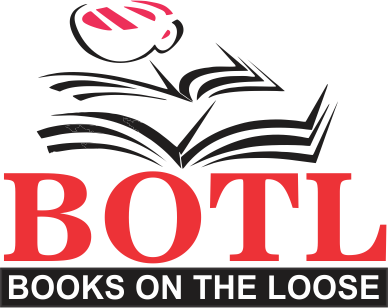-
Build the Damn Thing by Kathryn Finney
Don’t wait for the system to let you in–break down the door and build your damn thing. For all the Builders striving to build their businesses in a world that has overlooked and underestimated them: this is the essential guide to knowing, breaking, remaking and building your own rules of entrepreneurship in a startup and investing world designed for and by the “Entitleds.”
₦8995 -
This is marketing by Seth Godin
This book teaches you how to identify your smallest viable audience; draw on the right signals and signs to position your offering; build trust and permission with your target market; speak to the narratives your audience tells themselves about status, affiliation, and dominance; spot opportunities to create and release tension; and give people the tools to achieve their goals.
It’s time for marketers to stop lying, spamming, and feeling guilty about their work. It’s time to stop confusing social media metrics with true connections. It’s time to stop wasting money on stolen attention that won’t pay off in the long run. This is Marketing offers a better approach that will still apply for decades to come, no matter how the tactics of marketing continue to evolve.
₦8985 -
Beyond Entrepreneurship 2.0
Beyond Entrepreneurship left a definitive mark on the business community, influencing the young pioneers who were, at that time, creating the technology revolution that was birthing in Silicon Valley. Decades later, successive generations of entrepreneurs still turn to the strategies outlined in Beyond Entrepreneurship to answer the most pressing business questions.
Now, with Beyond Entrepreneurship 2.0, Collins re-shares the timeless insights in Beyond Entrepreneurship alongside new perspectives gleaned after decades of additional research into what makes great companies tick. In Beyond Entrepreneurship 2.0, you’ll learn how to turn your company into the 2.0 version of itself. You’ll be challenged to grow your own leadership as your company grows, from 1x to 2x to 5x to 10x. You’ll learn Collins’s newest reflections on people decisions, insights that extend beyond his seminal “first who” principle about getting the right people on the bus. You’ll learn why luck favors the persistent, and what it means to look for “who luck.” You’ll learn about the origins of the “BHAG” (Big Hairy Audacious Goal), and why even a small business needs a galvanizing BHAG to have a complete and inspiring vision.
₦8080 -
The personal MBA by Josh Kaufman
ngaging the reader in a lively conversation about how we think, Kahneman reveals where we can and cannot trust our intuitions and how we can tap into the benefits of slow thinking. He offers practical and enlightening insights into how choices are made in both our business and our personal lives—and how we can use different techniques to guard against the mental glitches that often get us into trouble. Thinking, Fast and Slow will transform the way you think about thinking.
₦7970 -
Think fast and slow by Daniel Kahneman
Engaging the reader in a lively conversation about how we think, Kahneman reveals where we can and cannot trust our intuitions and how we can tap into the benefits of slow thinking. He offers practical and enlightening insights into how choices are made in both our business and our personal lives—and how we can use different techniques to guard against the mental glitches that often get us into trouble. Thinking, Fast and Slow will transform the way you think about thinking.
₦7965 -
The infinite game by Simon Sinek
How do we win a game that has no end? Finite games, like football or chess, have known players, fixed rules and a clear endpoint. The winners and losers are easily identified. Infinite games, games with no finish line, like business or politics, or life itself, have players who come and go. The rules of an infinite game are changeable while infinite games have no defined endpoint. There are no winners or losers—only ahead and behind.
The question is, how do we play to succeed in the game we’re in?
In this revelatory new book, Simon Sinek offers a framework for leading with an infinite mindset. On one hand, none of us can resist the fleeting thrills of a promotion earned or a tournament won, yet these rewards fade quickly. In pursuit of a Just Cause, we will commit to a vision of a future world so appealing that we will build it week after week, month after month, year after year. Although we do not know the exact form this world will take, working toward it gives our work and our life meaning.
₦7460 -
The cold start problem by Andrew Chen
ew evidence shows us that as a mindset and a skilllset, rethinking can be taught and Grant explains how to develop the necessary qualities to do it. Section 1 explores why we struggle to think again and how we can learn to do it as individuals, arguing that ‘grit’ alone can actually be counterproductive. Section 2 discusses how we can help others think again through learning about ‘argument literacy’. And the final section 3 looks at how schools, businesses and governments fall short in building cultures that encourage rethinking.
In the end, learning to rethink may be the secret skill to give you the edge in a world changing faster than ever.
₦7290 -
Inventology by Pagan Kennedy
ventology uses the stories of inventors and surprising research to reveal the steps that produce innovation. As Kennedy argues, recent advances in technology and communication have placed us at the cusp of a golden age; it’s now more possible than ever before to transform ideas into actuality. Inventology is a must-read for designers, artists, makers—and anyone else who is curious about creativity. By identifying the steps of the invention process, Kennedy reveals the imaginative tools required to solve our most challenging problems.
₦6500 -
Commo-sense wisdom by Pepper de Callier
Common Sense Wisdom blends, in a unique way, quotes from ancient philosophers to modern-day business executives, sports figures and thought leaders from Buddha to Baltasar Gracian and Goethe, to Winston Churchill, Mary Pickford, Oscar Wilde, Wayne Gretzky and Margaret Thatcher to Walt Disney and Vaclav Havel and applies them to life in the 21st century, a time when act or be acted upon takes on a whole new meaning about one s life.
₦6500 -
Daring Greatly by Brene Brown
Every day we experience the uncertainty, risks, and emotional exposure that define what it means to be vulnerable, or to dare greatly. Whether the arena is a new relationship, an important meeting, our creative process, or a difficult family conversation, we must find the courage to walk into vulnerability and engage with our whole hearts.
In Daring Greatly, Dr. Brown challenges everything we think we know about vulnerability. Based on twelve years of research, she argues that vulnerability is not weakness, but rather our clearest path to courage, engagement, and meaningful connection. The book that Dr. Brown’s many fans have been waiting for, Daring Greatly will spark a new spirit of truth—and trust—in our organizations, families, schools, and communities.
₦6445 -
Start with why by Simon Inek
Why are some people and organizations more innovative, more influential, and more profitable than others? Why do some command greater loyalty from customers and employees alike? Even among the successful, why are so few able to repeat their success over and over?
People like Martin Luther King Jr., Steve Jobs, and the Wright Brothers might have little in common, but they all started with why. It was their natural ability to start with why that enabled them to inspire those around them and to achieve remarkable things.
₦6445 -
Company of one by Paul Jarvis
Company of One is a refreshingly new approach centered on staying small and avoiding growth, for any size business. Not as a freelancer who only gets paid on a per piece basis, and not as an entrepreneurial start-up that wants to scale as soon as possible, but as a small business that is deliberately committed to staying that way. By staying small, one can have freedom to pursue more meaningful pleasures in life, and avoid the headaches that result from dealing with employees, long meetings, or worrying about expansion. Company of One introduces this unique business strategy and explains how to make it work for you, including how to generate cash flow on an ongoing basis.
Paul Jarvis left the corporate world when he realized that working in a high-pressure, high profile world was not his idea of success. Instead, he now works for himself out of his home on a small, lush island off of Vancouver, and lives a much more rewarding and productive life. He no longer has to contend with an environment that constantly demands more productivity, more output, and more growth.
₦6440 -
Quiet by Susan Cain
At least one-third of the people we know are introverts. They are the ones who prefer listening to speaking; who innovate and create but dislike self-promotion; who favor working on their own over working in teams. It is to introverts—Rosa Parks, Chopin, Dr. Seuss, Steve Wozniak—that we owe many of the great contributions to society.
In Quiet, Susan Cain argues that we dramatically undervalue introverts and shows how much we lose in doing so. She charts the rise of the Extrovert Ideal throughout the twentieth century and explores how deeply it has come to permeate our culture. She also introduces us to successful introverts—from a witty, high-octane public speaker who recharges in solitude after his talks, to a record-breaking salesman who quietly taps into the power of questions. Passionately argued, impeccably researched, and filled with indelible stories of real people, Quiet has the power to permanently change how we see introverts and, equally important, how they see themselves.
₦6440 -
The new map by Daniel Yergin
World politics is being upended, as a new cold war develops between the United States and China, and the rivalry grows more dangerous with Russia, which is pivoting east toward Beijing. Vladimir Putin and China’s Xi Jinping are converging both on energy and on challenging American leadership, as China projects its power and influence in all directions. The South China Sea, claimed by China and the world’s most critical trade route, could become the arena where the United States and China directly collide. The map of the Middle East, which was laid down after World War I, is being challenged by jihadists, revolutionary Iran, ethnic and religious clashes, and restive populations. But the region has also been shocked by the two recent oil price collapses–and by the very question of oil’s future in the rest of this century.
₦6440 -
Master of Scale
Behind the scenes in Silicon Valley, Reid Hoffman (founder of LinkedIn, investor at Greylock) is a sought-after advisor to heads of companies and heads of state. On his podcast Masters of Scale, he sits down with an all-star list of visionary founders and leaders, digging into the surprising strategies that power their growth. In this book, he draws on their most riveting, revealing stories-as well his own experience as a founder and investor-to distill the secrets behind the most extraordinary successes of our times.
Through vivid storytelling and straightforward analysis, Masters of Scale distills their collective insights into a set of counterintuitive principles that anyone can use. How do you find a winning idea and turn it into a scalable venture? What can you learn from a “squirmy no”? When should you stop listening to your customers? Which fires should you put out right away, and which should you let burn? And can you really make money while making the world a better place? (Answer: Yes.)
₦6100


